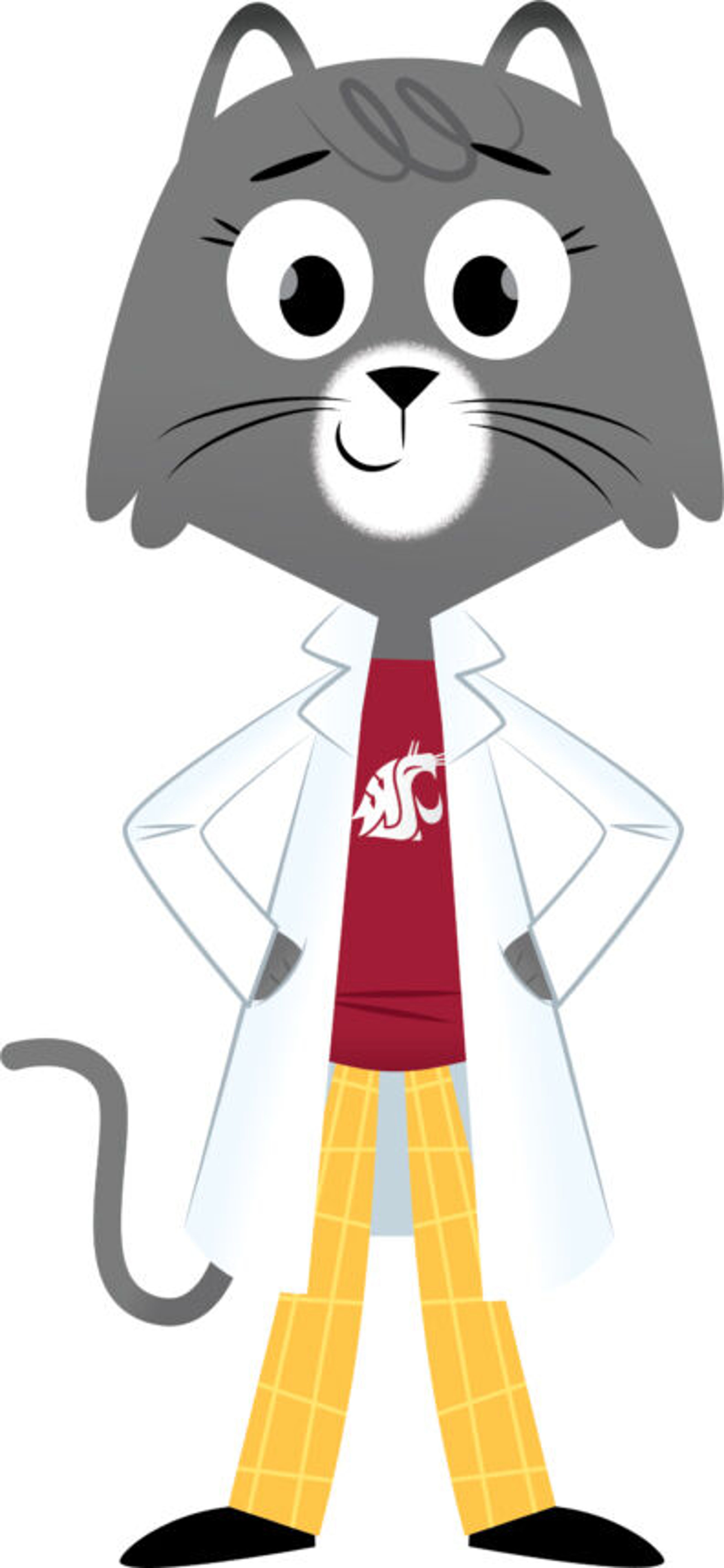Dr. Universe,
Why do we change our minds?
– Stella, 10, Tennessee
As a science cat, I’ve changed my mind a lot over the years. I used to wear a fancy neck scarf called a cravat all the time. Now I’m comfy in my lab coat.
I talked about that with my friend Makita White. She’s a graduate student in the psychology department at Washington State University.
She told me that we change our minds when we get new information or insight that tells us we need to make a different choice.
It turns out that we have lots of opinions and beliefs. They’re also called attitudes. We have attitudes about what we like to eat or wear. We have attitudes about other people and how the world should be.
White told me that having attitudes helps us out.
“Your brain uses things like attitudes as shortcuts to make decisions really fast,” she said. “That way you don’t have to develop a new opinion about something every time you see it.”
Let’s say you have an attitude that pineapple is the best pizza topping. Thanks to that brain shortcut, you don’t have to decide if you like pineapple every time someone offers you some. You know you like it.
But sometimes you get new information, or something shakes up our attitudes. Maybe you try a different pizza topping and like it even more than pineapple. Maybe you get some rotten pineapple and start feeling grossed out by it.
Changing your mind about pizza toppings isn’t a big deal. But it’s harder to change your attitude about something that feels important to who you are as a person.
I recently watched a cartoon about a world full of humans and elves. They hated each other and lived in separate places. But then some humans went on a journey with an elf. They eventually became friends. That was a huge change because disliking each other was part of being a human or an elf. It’s how they fit in with their families and friends.
White told me that when a person has an attitude and then has an experience that doesn’t fit with the attitude, they feel cognitive dissonance. That’s the uncomfortable feeling when the things you think or the ways you act clash with each other.
Like if you’re a human who thinks elves are terrible and scary. But you’re also friends with an elf who’s not terrible or scary at all. That’s going to make your brain uncomfortable. Then you must decide what to do about it.
You can stick with your old attitude and run away from your elf friend. You can make an excuse for why your friendship with this one elf doesn’t mean you were wrong before. Or you can examine the attitude and change the kind of human you are.
White says it may be easier to change your mind if you have a growth mindset. That means believing you can change and grow. It means letting go of attitudes that don’t work for you anymore.
Maybe that’s why I was able to figure out my lab-coat-wearing destiny. Maybe someday I’ll try something new and like that, too.
It’s just a matter of adjusting my cat-titude.
Have a science question? Ask Dr. Wendy Sue Universe, WSU’s resident science cat and writer, by email at Dr.Universe@wsu.edu, on her website at askDrUniverse.wsu.edu, via Twitter at @AskDrUniverse.








